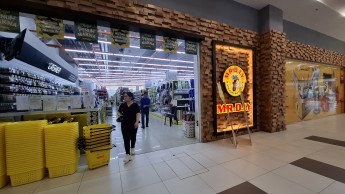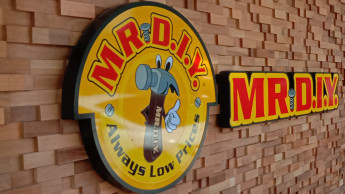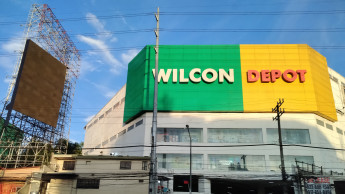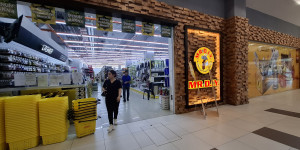Thai retail group Mr. DIY is Malaysia’s dominant home improvement retail chain operator. The company, which has been relying heavily on new outlets to shore up sales, disclosed revenues of 4.651 bn Malaysian ringgit (MYR, EUR 967.15 mio) last year, up 6.7 per cent from 2023. This is slower than its normal annual sales growth rate, which hovers around 10 per cent. Of this, Malaysia contributed MYR 4.6 bn, while Brunei accounted for MYR 43.268 mio.
For the last three months of the year, Mr. DIY’s sales reached MYR 1.17 bn, inching up 2.6 per cent against the comparative period. Against the third quarter, the sales for the October-December 2024 period were 3.7 per cent higher.
„This growth was primarily driven by contributions from new stores, which increased 13.8 per cent [year on year],” the company reported to the Malaysian bourse. Mr. DIY opened 174 stores across all brands in 2024, bringing its total store network to 1,435 outlets at the end of the year. This is five short of the company’s earlier plan.
The company also revealed that while total transactions – the number of purchases recorded by the tills during the year – rose 10.8 per cent to 182.8 million, the average basket size shrank 3.6 per cent, reflecting weak consumer sentiment.
Mr. DIY also said that like-for-like sales shrank. It did not reveal the extent of its contraction. „[The year] 2024 has been a year of moderation, but also one of strategic opportunity,” Mr, DIY chief executive officer Adrian Ong said in a statement. He also noted that the company took the opportunity to diversify its offerings. The company purchased lifestyle brand KKV, in the second half of 2024 as part of efforts to diversify its offerings as it nears saturation point in its home country.
Defending its value
Mr. DIY’s weak profits for 2024 – pegged at MYR 568.9 mio, up 1.47 per cent from last year – has adversely impacted market sentiment and sent the company’s market value on a downward spiral. The weak income, attributed to costly administrative expenses – including higher staff costs, utility expenses, and costs associated with its automated warehouse – put pressure on subdued revenues, leading analysts to issue cautionary notes and scale back their bullish forecast for the stock. In a New Straits Times report, Maybank Investment Bank was quoted as saying that Mr. DIY has „shared concerns about sales erosion on a per square foot and per store basis”.
Meanwhile, at Bursa Malaysia, Mr. DIY’s owners and officials…

 Menü
Menü














 Newsletter
Newsletter